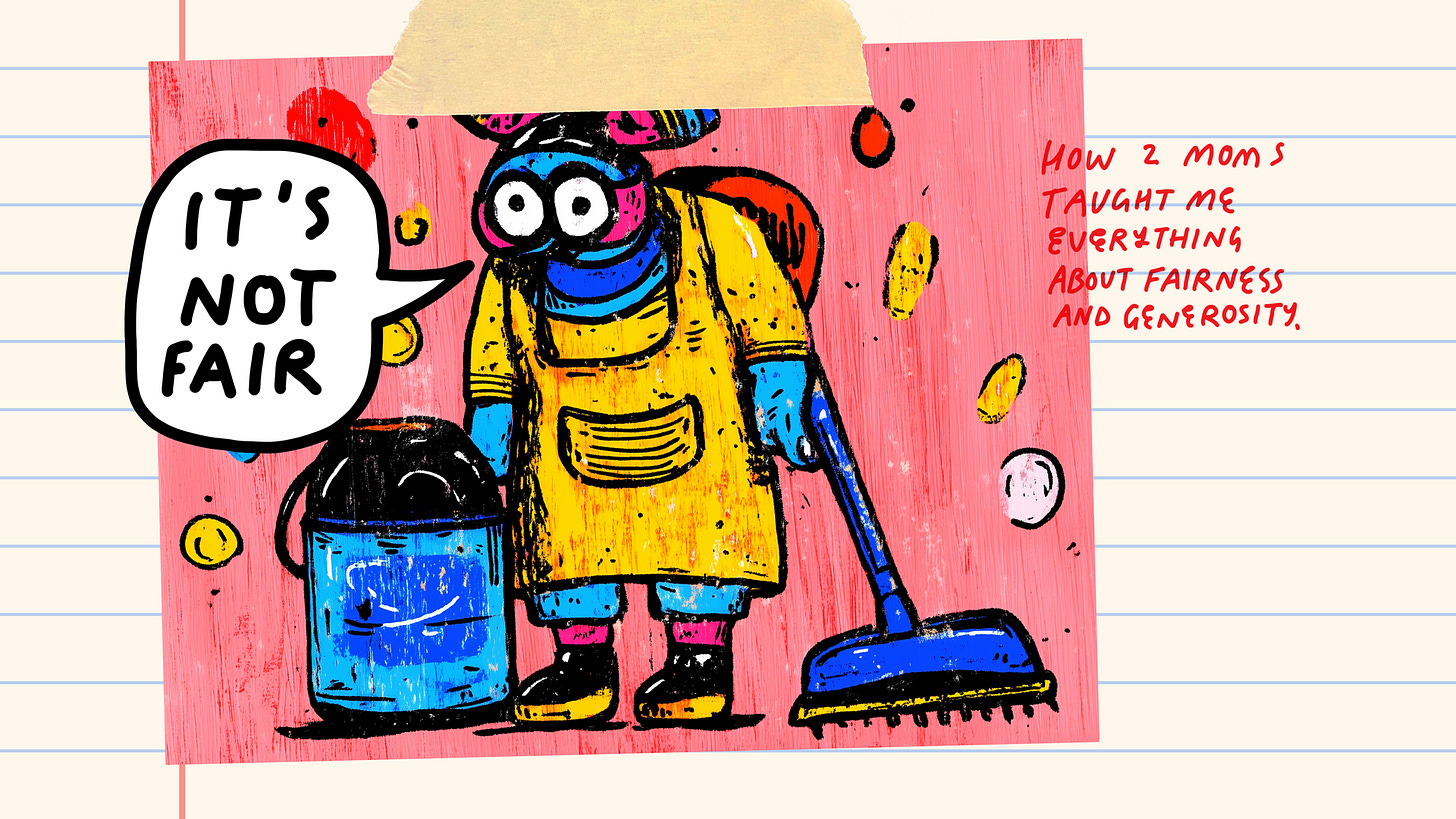Why Fairness Is Overrated: A Mindset Shift That Changes Everything
How Two Moms Taught Me Everything About Fairness and Generosity
We’ve all been there—staring at a mountain of dirty dishes, cooking dinner (again), or vacuuming for what feels like the hundredth time, all while wondering, “Why am I the only one doing this? It’s not fair.”
Fairness, we think, means everyone should take on their share of the shitty stuff. But what if we’re looking at fairness the wrong way?
Two moms, who gave me lifts home during my school days, taught me an unforgettable lesson about fairness, generosity, and the stories we tell ourselves about what’s “fair.”
Back in school, two of my friends lived on the same street as me, and both had moms who picked them up at 2pm. Lucky for me, they often gave me a ride home too—saving me from the dreaded 6pm bus ride.
But their approaches couldn’t have been more different.
One mom, after a while, asked if our parents could take turns driving. When we explained they couldn’t because they worked, she stopped giving us rides. She said it wasn’t fair. I was mad because she was already making the trip and deliberately leaving us behind.
The other mom? She laughed with us, welcomed the company, and never asked for anything in return. Her generosity felt effortless, like she genuinely enjoyed being part of her kids’ lives—and ours.
These two women taught me something profound: fairness isn’t about splitting the load evenly. It’s about how you choose to approach the work you’re already doing.
Every time I catch myself thinking it’s unfair that I’m doing all the shitty stuff, I remember those two moms. I remember that I’m doing this work for myself anyway—I’m already cooking, already cleaning, already shopping.
The question isn’t whether someone else should step up.
It’s how I decide to show up.
When you focus on what others are gaining at your expense, it’s easy to feel resentful. If you’re the one giving your time, energy, or effort, you have a choice: to see it as a burden or as an opportunity to bring kindness into the world.
Instead of keeping score and comparing, shift your mindset to being generous.
Because here’s the truth: it feels good to do stuff for others. It feels good to free up their time and make space for them. And the easiest time to do it is when you’re already doing it for yourself—when it costs you very little but means so much to someone else.
Generosity isn’t just a gift for others—it’s a gift for yourself. It makes the hard work meaningful. And when someone does something for you, even something small, you’ll see it as it really is: a gift to be grateful for, not an obligation to repay.





Love it! Keep them coming.